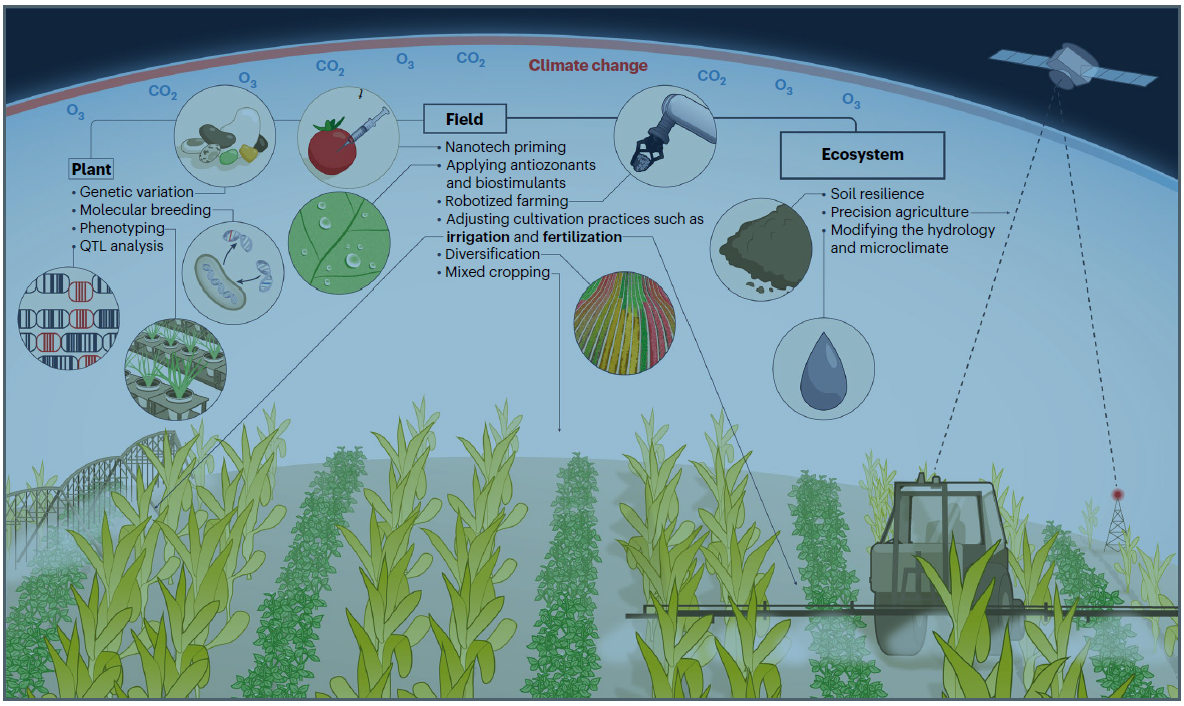October 16, 2023 | Nature Food |
Introduction: Air pollution and climate change are interconnected challenges that impact field crop production and agroecosystem health. Adapting crop production to these simultaneous challenges will require complex mix of advanced technologies. Researchers from Nanjing University of Information Science & Technology in China and University of Bonn/INRES in Germany collaborated on comprehensive review of relevant science and technology.
Key findings: At the plant level, scientists are integrating genetic diversity, employing molecular breeding, and utilizing advanced phenotyping methods to enhance crops' ability to withstand changing conditions. Field-level strategies involve optimizing cultivation practices, encouraging diverse crops, and implementing innovative technologies like antiozonants, nanotechnology, and robotic farming. These approaches aim to make agricultural systems more resilient and adaptive.
Ecosystem-level interventions include enhancing soil resilience, adopting precision agriculture, and modifying the hydrology and microclimate of agricultural landscapes. These broader measures contribute to sustainable farming practices. The goal is to develop strategies and opportunities that allow crops to thrive in the face of evolving environmental challenges. By comprehensively addressing air pollution and climate change, these recent advancements offer hope for ensuring food security and resilient agriculture in the future.
Fig. | Adaptation of crop production to air pollution and climate change at the plant, field and ecosystem levels.






